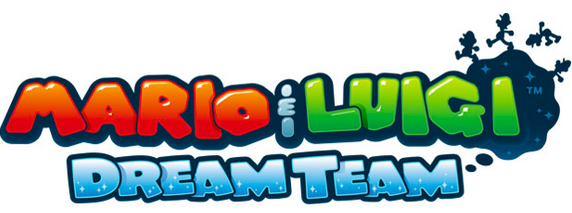Nintendo had been engaged in a legal battle over the Wii MotionPlus accessory, which was thought to have infringed on one of Triton’s patents in the US. However, the patent-infringement lawsuit as been dismissed. Judge Richard A. Jones of the U.S. District Court rejected Triton’s legal arguments.
Richard Medway, Nintendo of America’s deputy general counsel, said in a statement:
“We feel vindicated by the court’s ruling. Nintendo’s track record demonstrates that we vigorously defend patent lawsuits, like the Triton lawsuit, when we believe that we have not infringed another party’s patent. Consumers respect Nintendo because we develop unique and innovative products, and because we respect the intellectual property rights of others.”
Source: Nintendo PR

System: Nintendo 3DS
Release Date: July 12th (EUR), July 13th (AUS), July 18th (JPN) August 11th (NA)
Developer: AlphaDream
Publisher: Nintendo
Author: Spencer
Nintendo’s hit RPG series Mario & Luigi lands its first entry on the 3DS on August 11th. As the famous brothers make the leap to 3D, they’re bringing new adventures, puzzles, battles, and unique gameplay along with them. Plus, the spotlight this time around is not on who you might think. Hit the jump to learn more about this exciting new first-party title.
Richard Perrin, the creator of Kairo, will probably be bringing his next game to Wii U.
Journal is a new adventure title that emphasizes character interaction, dialogue and narrative choices. You’ll be playing as a young girl who experiences childhood issues including lying to friends, cheating on tests, and more.
It sounds like Journal has a pretty good shot of hitting the eShop when it launches (hopefully) later this year.
Perrin said the following when asked if he intends to get the game up and running on Wii U:
Yeah, because Nintendo have been a lot more open with indies than they necessarily have historically, and I think that’s a great sign of this generation where even the big companies are looking more to indies, and so I met up with the Nintendo guys at PAX and GDC earlier this year, and now they’ve already sent me out a devkit and the equipment needed to take a game like this and get it onto their platform.
I’ve already managed to get rough bits and pieces working, and the hope is that this will eventually come out on Wii U later in the year. Obviously, Nintendo still have an approval process, so I can’t guarantee it, but I don’t see that there’d be any problems.
Atlus USA has sent out an official statement regarding the company’s situation in light of Index Corporation’s bankruptcy.
The publisher had only good news to report. In its remarks, Atlus said that it continues “carrying on day-to-day activities, business as usual.” As is the case in Japan, Atlus USA’s titles are still scheduled for launch on their previously-announced dates.
“Currently, Index Digital Media, Inc. and the ATLUS brand are unaffected by the Index Corporation proceedings in Japan. We’re carrying on day-to-day activities, business as usual. Shin Megami Tensei IV and Dragon’s Crown are still releasing on July 16 and August 6 respectively, and we’re licensing and publishing third-party titles such as R.I.P.D: The Game and Daylight. We want to thank all of our fans for their outpouring of support.”
LEGO City Undercover: The Chase Begins is available on Amazon at a discount. It comes with a little bonus, too.
You can purchase The Chase Begins for $23 through Amazon. All current purchases come with a minifigure of Chase McCain, the game’s main character.
Disastercake’s Soul Saga is now fully funded on Kickstarter. 17 days remain, yet the $60,000 target has already been reached.
There’s still plenty of work to be done with the campaign. Soul Saga has numerous stretch goals on the horizon. If the Kickstarter hits $80,000, the game will officially head to Wii U, PlayStation 4, and PS Vita.
Thanks to Ken P for the tip.
Flipnote Studio 3D is seeing a small delay in Japan. The free download has moved from July 3 to July 24 – it’s an extra three weeks wait.
Nintendo will be making Flipnote Studio 3D available in August across North America and Europe. A specific August 1 date was previously announced for European territories.









































